Peugeot will return to the Le Mans 24 Hours in 2022 with a new 670bhp hypercar that uses a hybrid powertrain built around a 2.6-litre twin-turbocharged V6 engine.
The French firm released the first details of the car that it will build to meet the new Le Mans Hypercar (LMH) regulations earlier this year, and it has now outlined how the four-wheel-drive powertrain will work.
The system will be built around a 670bhp twin-turbo 2.6-litre 90deg V6 petrol engine, which weighs 165kg and will be mounted behind the driver. That will combine with a 268bhp front-mounted electric motor-generator, which will be powered by a high-density 900V battery. The system uses a seven-speed gearbox.
The V6 unit has been developed by Peugeot Sport based on learning from both the V12 and V8 engines used in its previous 908 Le Mans racer and the four-cylinder units developed by sibling firm Citroën in the World Rally Championship.
François Coudrain, the project's powertrain chief, said a single turbo was considered, but the twin-turbo offers a lower centre of gravity and "the best trade-off between technology, weight, packaging of the engine's ancillaries, reliability and performance".
The new Le Mans rules set the maximum system output at 670bhp, so the unit will be set to draw that power from the V6 and electric motor in different ways depending on circumstances.
The rules prohibit the use of electric power at speeds of below 75mph, so the petrol unit will be the sole power source at low speeds.

At full power, the output of the V6 is capped at 402bhp and will vary based on the power produced by the electric motor. When that unit comes into use, the car will switch from rear- to four-wheel drive. The battery is charged via a mains plug-in cable ahead of races and on track purely by regenerative braking. If the battery is empty, the rules permit the engine to deploy an extra 3% of power (20bhp) purely to charge the battery.

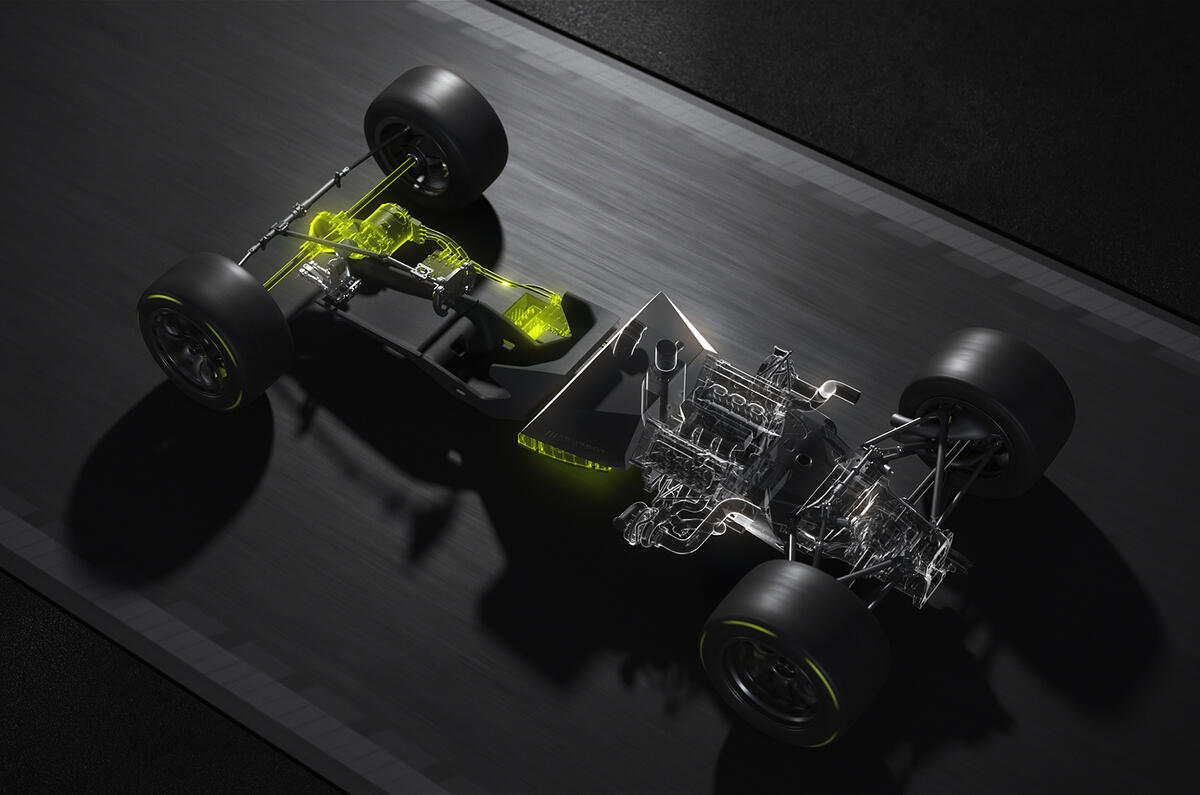
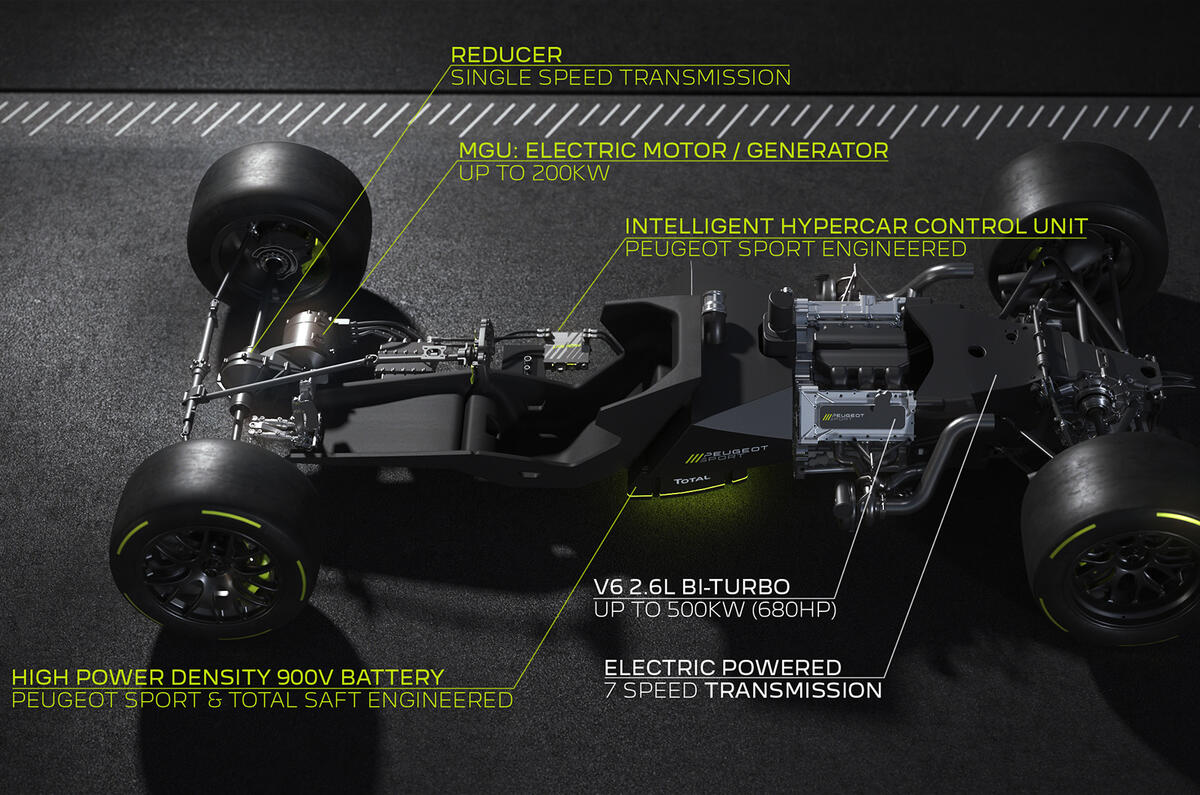
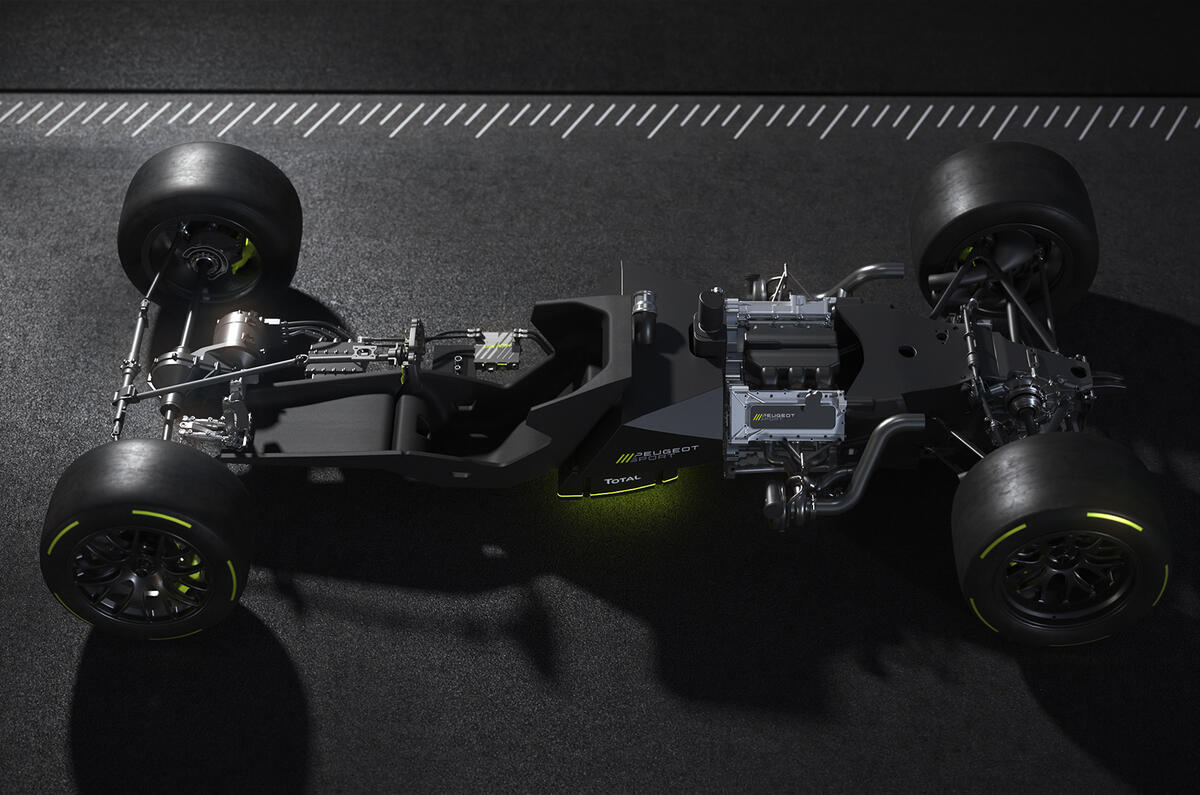
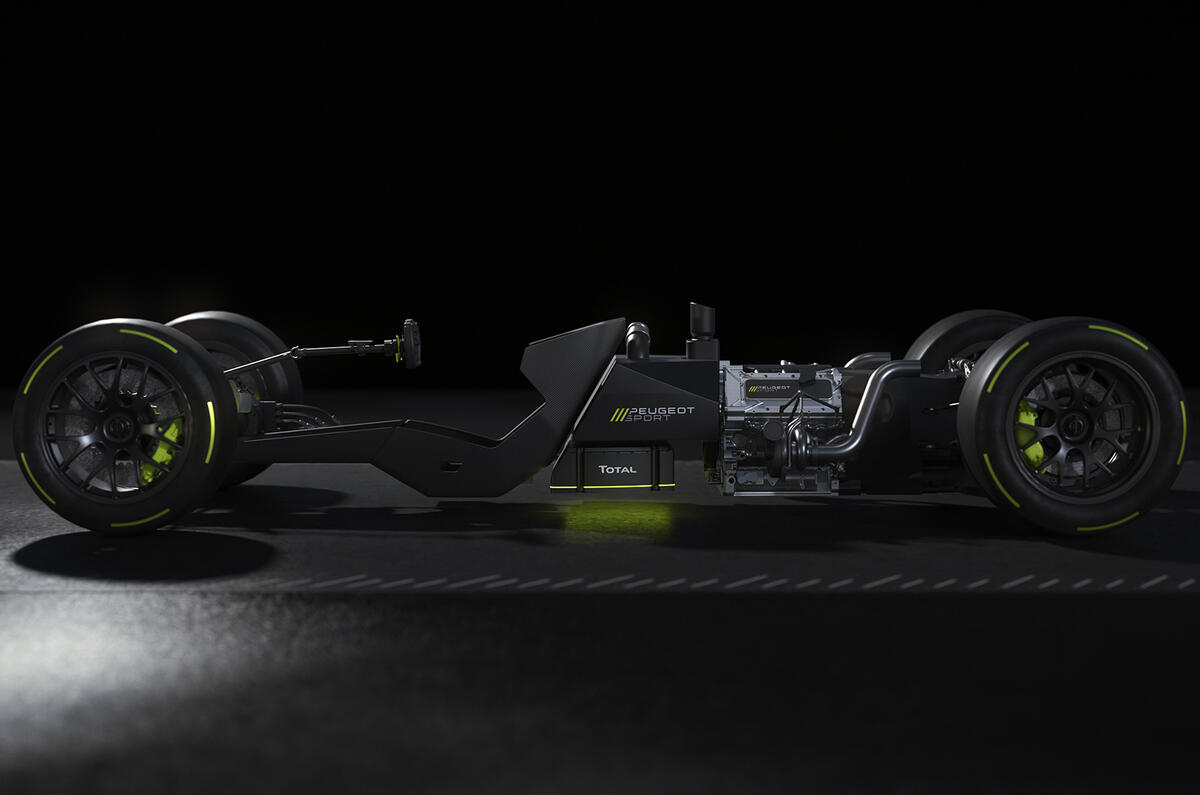
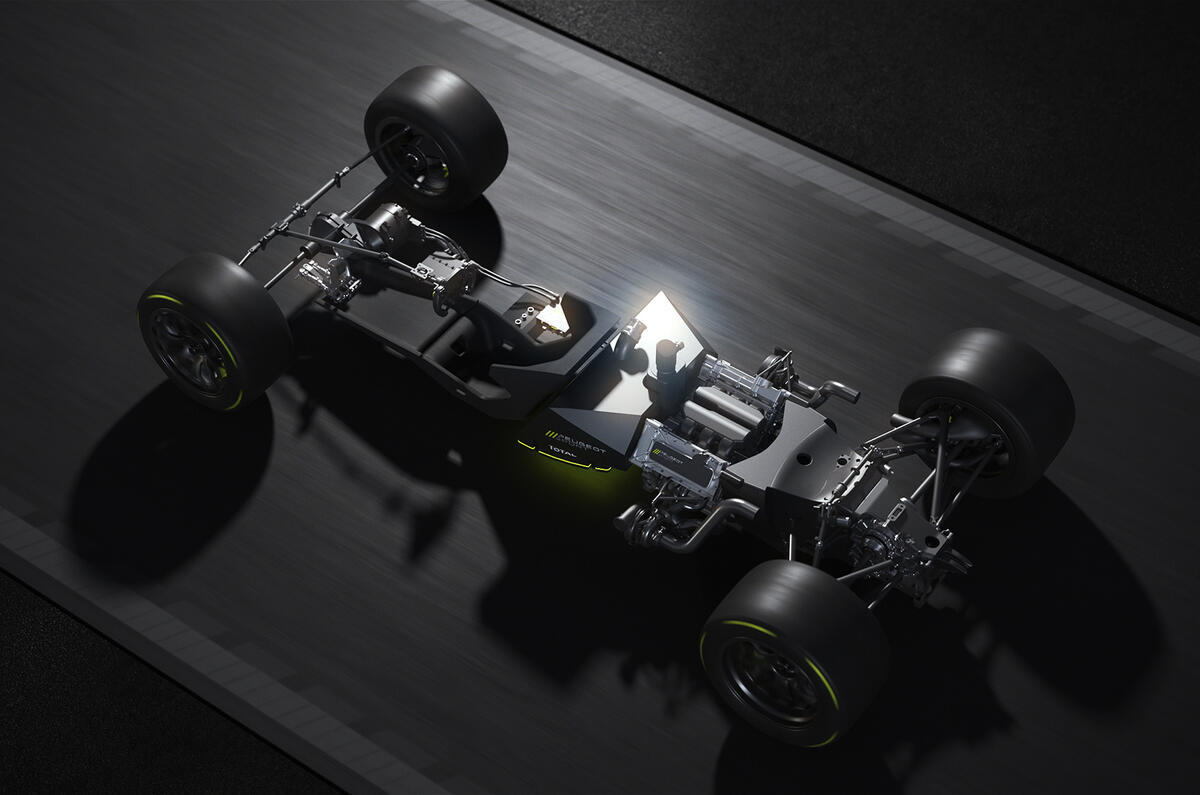
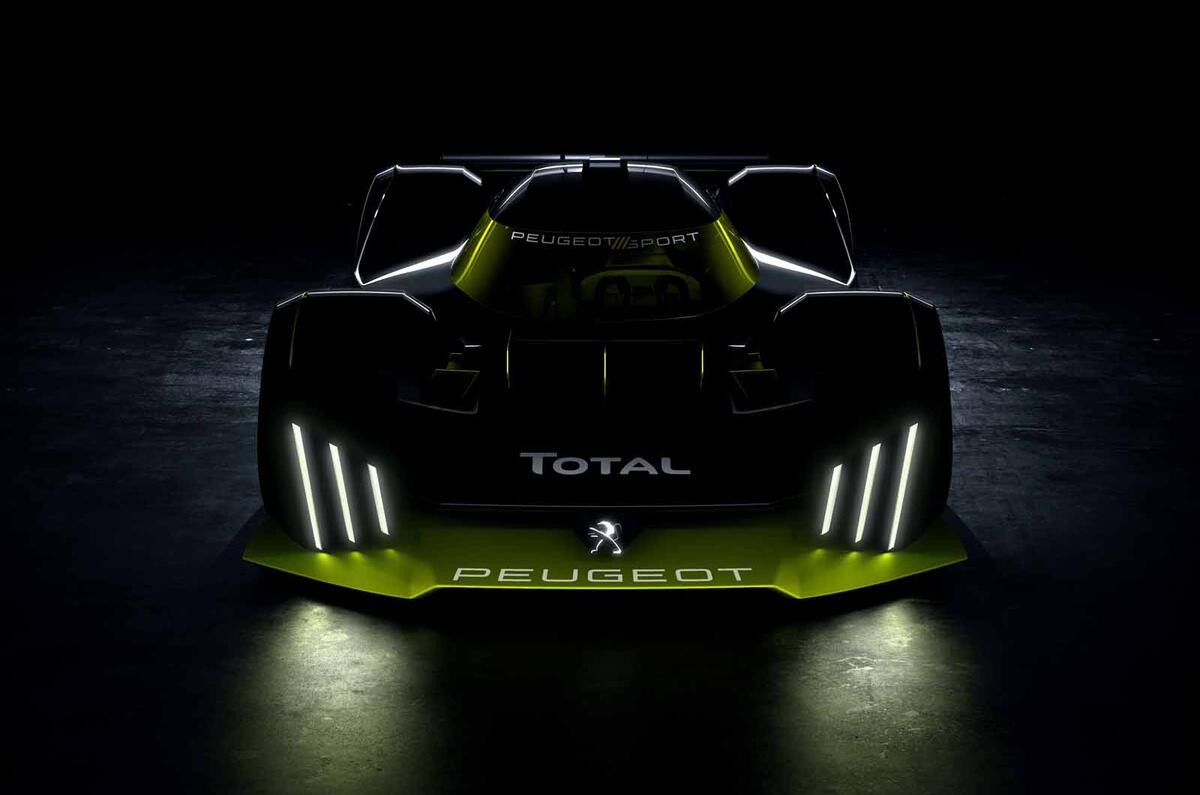
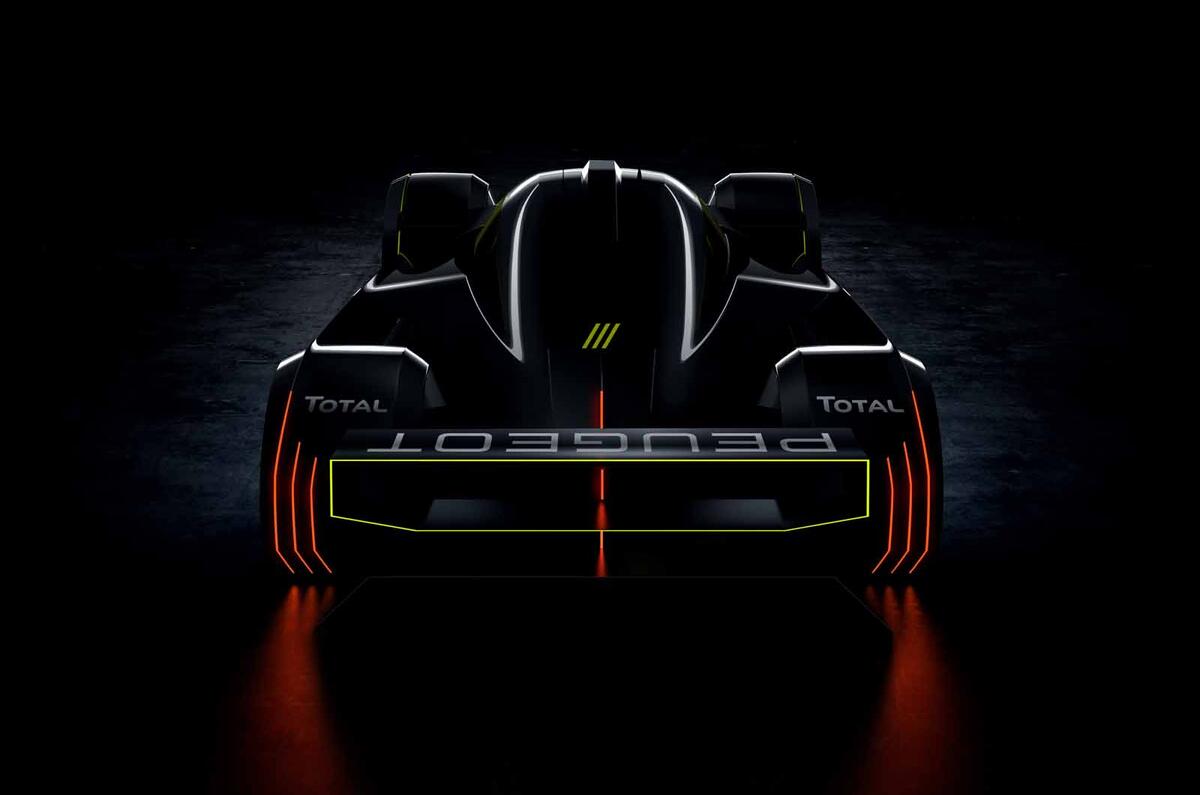
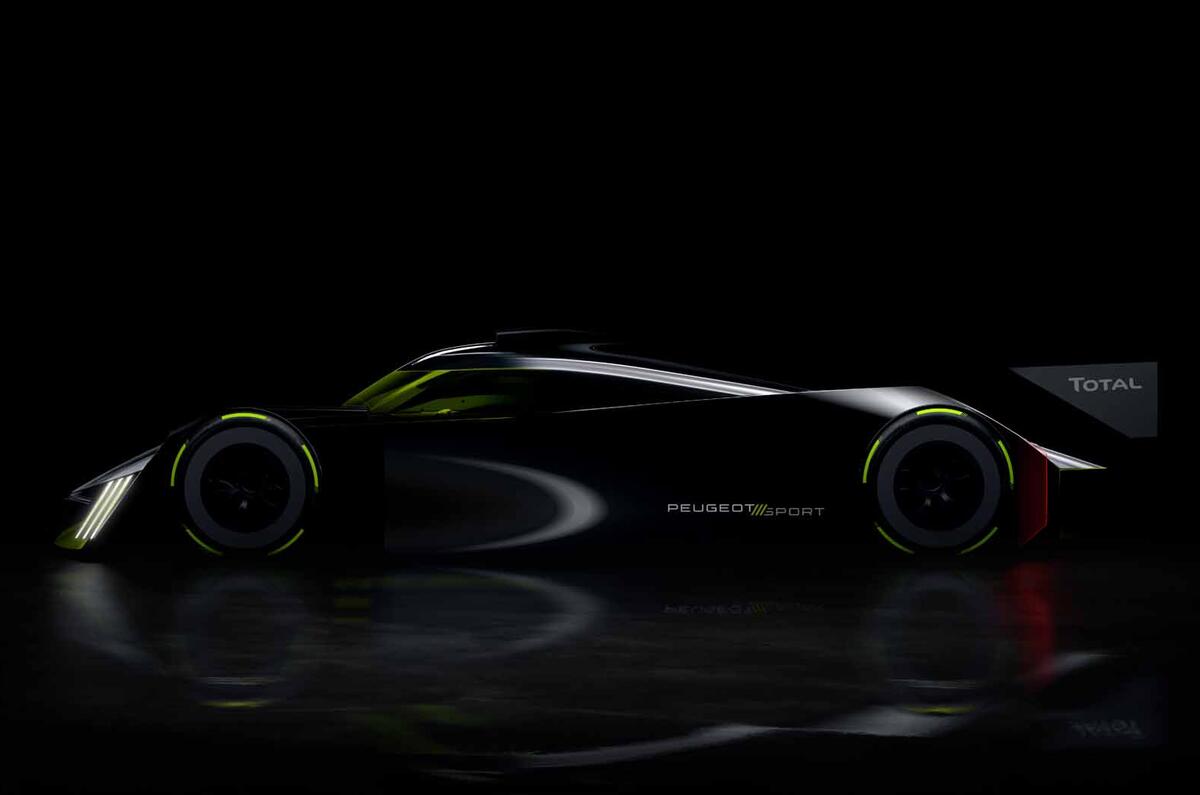
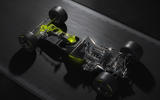
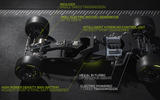
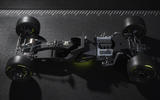
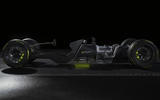
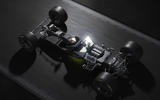
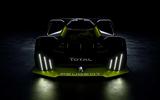
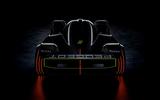
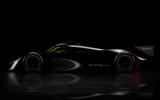

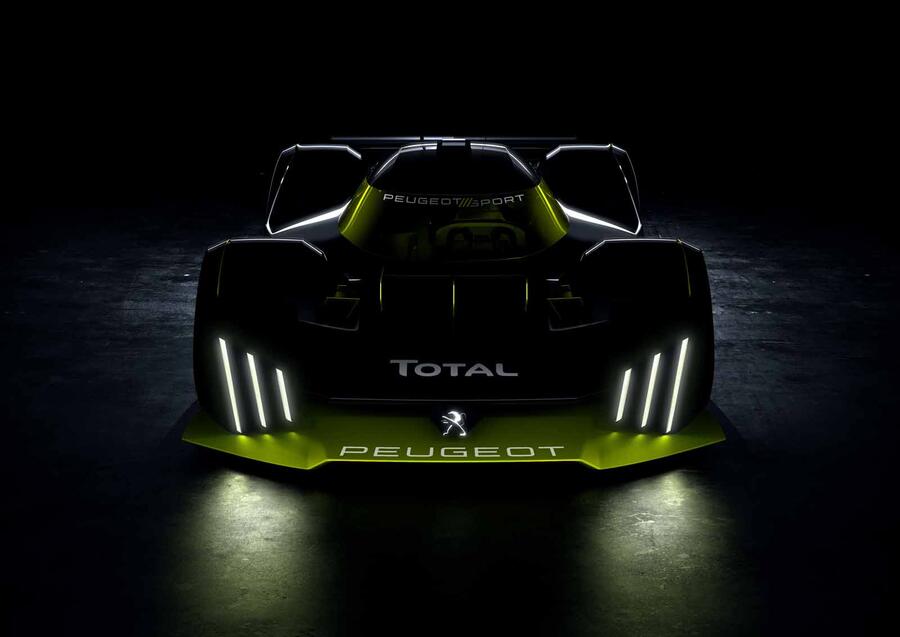






Add your comment